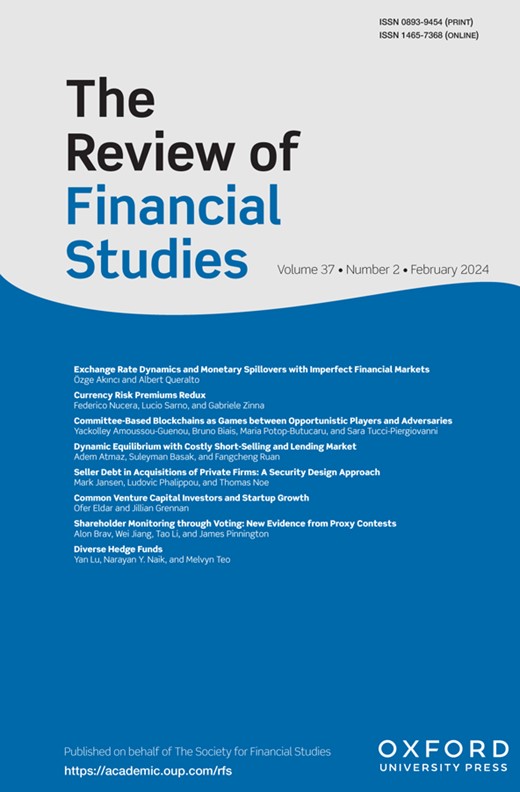汽车贷款市场中的种族差异
IF 5.4
1区 经济学
Q1 BUSINESS, FINANCE
引用次数: 9
摘要
我们记录了汽车贷款中的种族差异。将信贷局的记录与借款人的特征相结合,我们发现黑人和西班牙裔申请人的支持率要低1.5个百分点,即使在控制了信用度之后也是如此。总的来说,这种效应每年挤出8万笔少数族裔贷款。在种族偏见更普遍、贷款竞争更低的地方,结果更为强烈。少数族裔借款人支付的利率高出70个基点,但违约率较低,这与种族偏见而非统计歧视一致。一项主要的反歧视执法政策于2013年启动,但于2018年停止,将利率中无法解释的种族差异降低了60%。本文章由计算机程序翻译,如有差异,请以英文原文为准。
Racial Disparities in the Auto Loan Market
We document racial disparities in auto lending. Combining credit bureau records with borrower characteristics, we find that Black and Hispanic applicants’ approval rates are 1.5 percentage points lower, even after controlling for creditworthiness. In aggregate, this effect crowds out 80,000 minority loans each year. Results are stronger where racial biases are more prevalent and lending competition is lower. Minority borrowers pay 70-basis-point higher interest rates, but default less ceteris paribus, consistent with racial bias rather than statistical discrimination. A major antidiscrimination enforcement policy initiated in 2013, but halted in 2018, reduced unexplained racial differences in interest rates by 60%.
求助全文
通过发布文献求助,成功后即可免费获取论文全文。
去求助
来源期刊

Review of Financial Studies
Multiple-
CiteScore
16.00
自引率
2.40%
发文量
83
期刊介绍:
The Review of Financial Studies is a prominent platform that aims to foster and widely distribute noteworthy research in financial economics. With an expansive editorial board, the Review strives to maintain a balance between theoretical and empirical contributions. The primary focus of paper selection is based on the quality and significance of the research to the field of finance, rather than its level of technical complexity. The scope of finance within the Review encompasses its intersection with economics. Sponsoring The Society for Financial Studies, the Review and the Society appoint editors and officers through limited terms.
 求助内容:
求助内容: 应助结果提醒方式:
应助结果提醒方式:


